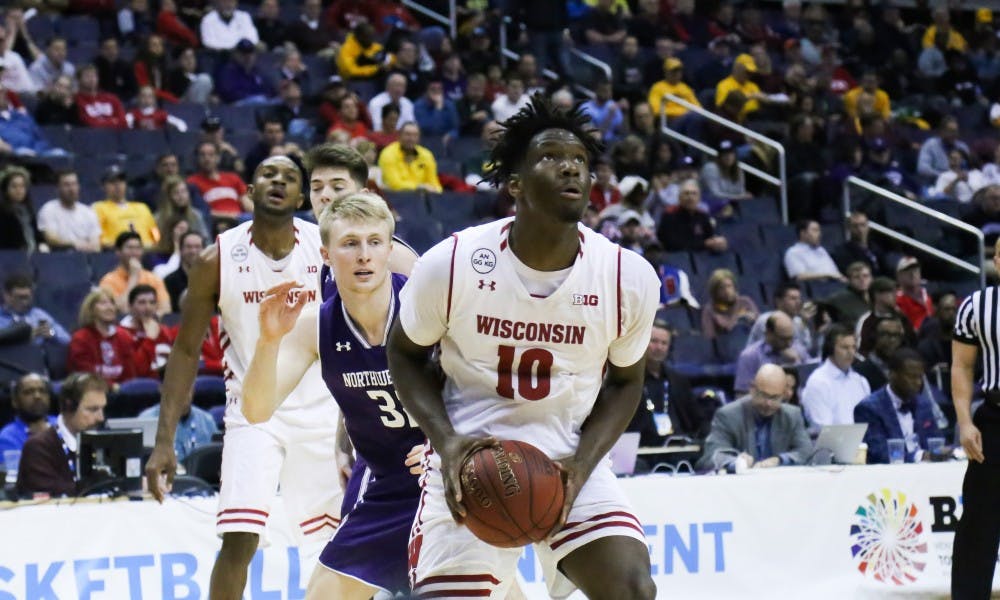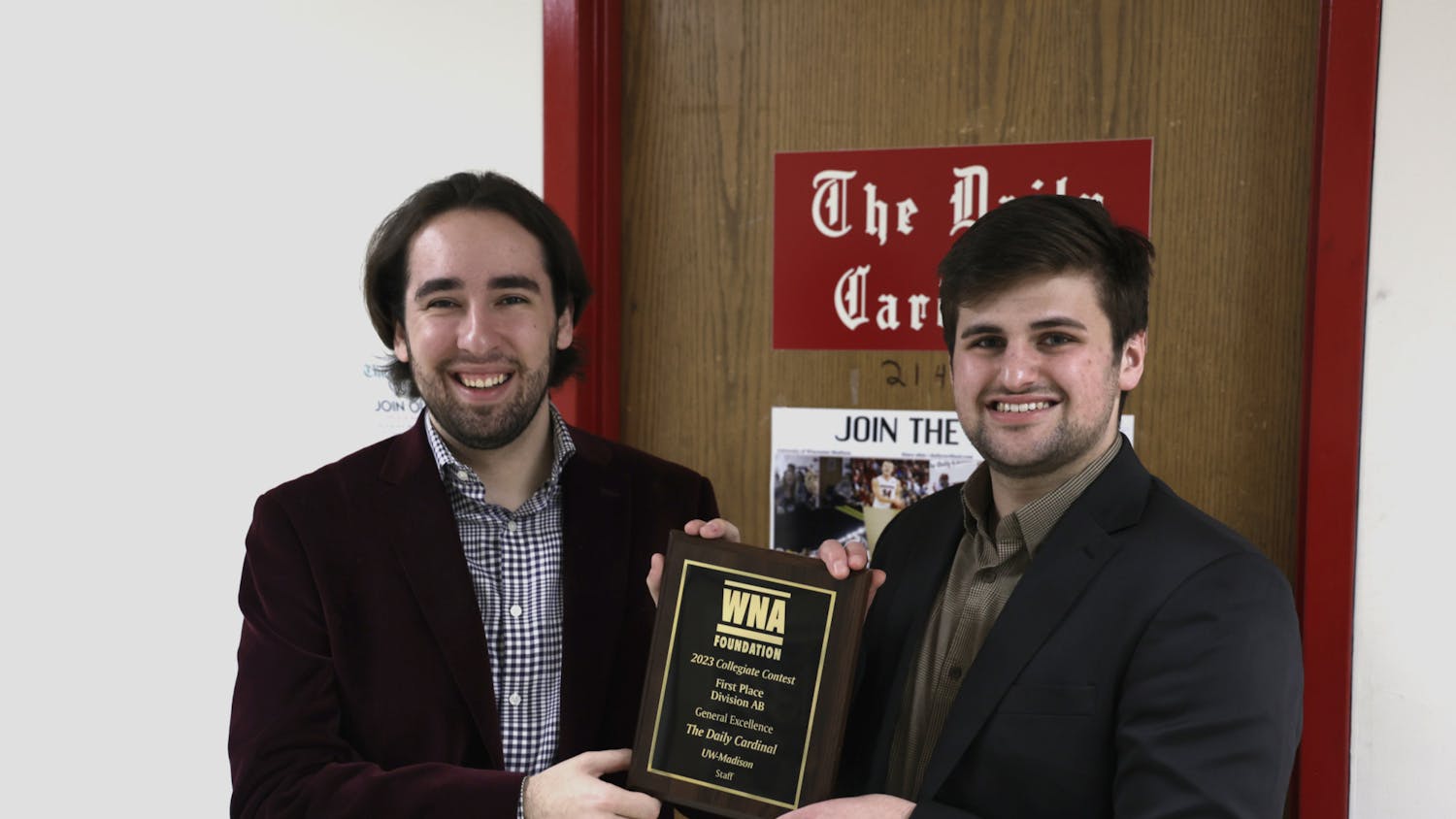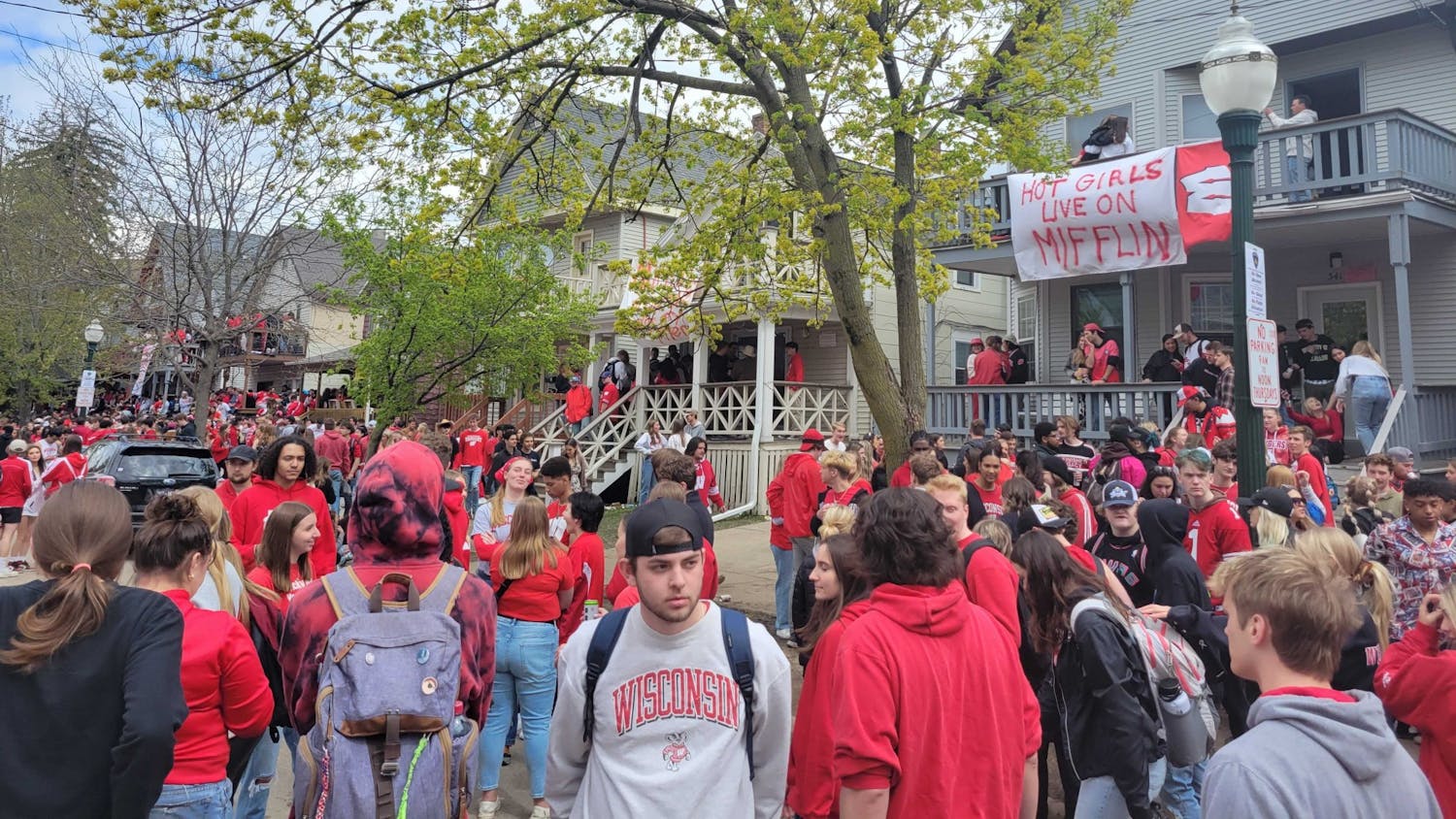March is every college basketball lover’s favorite month, and this year, Badger fans were eager to see how the team would do. Not many expected UW to beat No.1-seeded Villanova, but they did and also had a hard-fought battle against Florida that ended in a heartbreaking loss during the last seconds of overtime.
Although the team was not able to make it to the championship, players’ actions off the court are what truly set them apart from other college basketball teams.
Two of the most prominent Badger athletes, Nigel Hayes and Bronson Koenig, have used their platform to bring awareness to several issues that many others in their position might be afraid to speak out on.
There has long been debate on whether college athletes should be paid. Critics question how ethical it is for the NCAA and college institutions to profit off players who receive no monetary compensation, while the other side argues that athletes are paid in the form of free tuition and other perks.
Hayes has been outspoken on this issue and is a huge proponent for paying college athletes. This past October, when ESPN came to campus for “College GameDay,” Hayes protested the NCAA by holding up a sign that said “Broke College Athlete, Anything Helps” and the information for a Venmo account to donate to. Hayes’ goal wasn’t to actually keep the money for himself; all of the money raised was donated to the Boys & Girls Club of Dane County.
Hayes’ protest against the NCAA caught the entire nation’s attention and was reported by major outlets such as The New York Times, ESPN and The Huffington Post. Not many high-profile athletes on the cusp of a professional career would speak out against this issue for fear of retaliation from the NCAA, or lack of interest from professional teams.
But Hayes uses his position as one of the most talked-about college basketball players to bring attention to this issue rather than shying away from it.
Moreover, Hayes’ donation and involvement with the Boys & Girls Club shows his dedication to improving his community. Ultimately, these children look up to Hayes and he does not back down from his status as a role model.
Hayes has also been outspoken on racial issues, specifically the Black Lives Matter movement. Back in September, he posted a series of tweets related to racism and police brutality, one tweet writing that “To White America, black athletes should only entertain. Once they speak on social issues, they’ve gone too far...”
He is not afraid to speak up about issues that might make others feel uncomfortable and is dedicated to raising awareness on racial injustice faced by blacks. Once again, his tweets caught the attention of many, as he has some 92,000 followers on Twitter, which forces his fans to start confronting racial issues.
Bronson Koenig has also embraced his status as a role model and activist. As a member of the Ho-Chunk Nation, Koenig is very active in its community. Earlier this year, he traveled to Standing Rock Reservation to protest the construction of the Dakota Access Pipeline which would disturb native burial grounds and contaminate surrounding water sources. While he was there, Koenig ran a basketball clinic for Native American children on the grounds.
There are not many Native American athletes, especially in basketball, so by working with these children, Koenig becomes a prominent figure they can look up to.
He also hasn’t shied away from speaking out on other issues, such as the use of Native Americans as mascots. Koenig’s understanding of Native American issues has made him an influential figure and advocate for the community, especially for younger children who do not always see celebrities and athletes who share their background.
Both Hayes and Koenig are taking a risk by being so vocal on these social issues. It could potentially hurt their draft prospects in the NBA, as teams may see them as too controversial.
There are real examples of athletes’ activism thwarting their careers. Colin Kaepernick, former quarterback for the San Francisco 49ers, has not found a job with another team despite his free-agency because of his choice to kneel during the national anthem to support the Black Lives Matter movement.
However, Hayes and Koenig understand this risk and continue to be activists despite the potential consequences.
They both use their fame to encourage fans and the nation to have difficult conversations regarding racial and social issues.
Both are dedicated to their sport, but it is inspiring to see that they are even more committed to speaking up and striving for social change.
While we may love watching these athletes play on the court, it is what they have done off the court that is a true testament to their character.
Madison is a sophomore majoring in English and communication arts. What are your athletes using their platforms to spur social change? Are sports a proper forum for social activism? Do you support Hayes and Koenig? Please send all questions, comments and concerns to opinion@dailycardinal.com.






